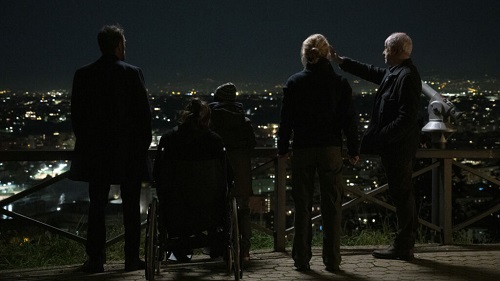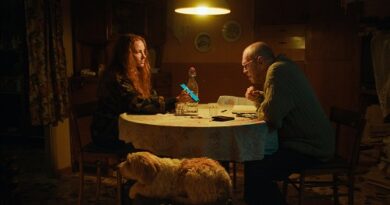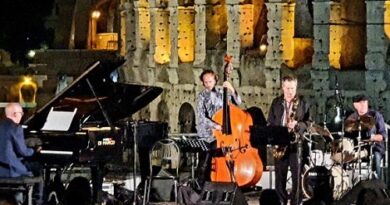Paolo Genovese’s Afterlife Voyage: “The First Day of My Life”
TORONTO – A 2006 Documentary titled “The Bridge” shot 10,000 hours of footage capturing suicides off of the Golden Gate Bridge. After watching this, Italian Author and Director Paolo Genovese became fascinated with what the suicide survivors confessed in interviews. “All of them, in seven seconds, which is how long it takes [from the Golden Gate Bridge] to hit the water, had repented. These seven seconds fascinated me. How can a lifelong decision so stratified or unavoidable or incredible, be overturned in just seven seconds? I wondered about when you hit rock bottom and when there is nothing left to do, what things can lead you to change your mind?”. The questions raised by the controversial documentary became the seed for Genovese’s book “The First Day of My Life” and it’s eventual film adaptation in 2023.
The story begins with a mysterious nameless Man, played by Tony Servillo, greeting four suicidal individuals moments after their demise. Over the course of the next seven days these lost souls are shown their probable futures – should they wish to reverse their decision. Time is suspended and the characters are neither alive nor dead, a likely metaphor for their state of mind. The film’s baroque humor and spiritual descent brings to mind Dante Alighieri’s Divine Comedy. In fact, one of the characters even walks past a Roman mural off the city’s beaten path, depicting Dante Alighieri. Genovese’s story does somewhat borrow from Dante’s voyage into purgatory, a place the Florentine poet believed is transformative – a place for self-reflection of the highest order. And just as Dante believed that we are not able to live well if we cannot love well, Genovese’s characters must rediscover their love, not only for others or themselves but also for what inspires them most.
The story at times might feel, to some, a bit trite or even melodramatic, an unavoidable consequence when tackling the complicated and often avoided topic of death or the afterlife. Yet Genovese does well not to oversimplify the plight of the suicidal, or the complexities of having to live with the effects of deep trauma and unyielding depression. Genovese’s story is relentlessly hopeful in the face of despair, while never diminishing the arduous journey of rehabilitation. In a pivotal moment of the film for example, Servillo’s mysterious Man brings his group to a nightscape lookout. There, looking out at the City’s lights, he magically switches them all off. Then back on again, saying:
“I can’t guarantee that you’ll all be happy. One day you’ll be one of those lights that are turned on, and another day one that’s off. But one thing I hope is that you’ll have nostalgia for happiness. And maybe this will give you the desire to look for it again”.
Paolo Genovese’s film can be described as just that: nostalgia for happiness. For this viewer, it inspired nostalgia for the great Italian films and filmmakers we continue to watch in Film Schools, Film Festivals and with our families. It’s a reminder that Italy once led the way in Cinema, through auteurs like Fellini, Antonioni, Pasolini and many others. Fortunately, there are several lights that continue to shine over modern Italian Cinema, and one of them is named Paolo Genovese.
In the pics above: a scene from the movie “Il primo giorno della mia vita” and the poster of the film
Massimo Volpe is a filmmaker and freelance writer from Toronto: he writes reviews of Italian films/content on Netflix






